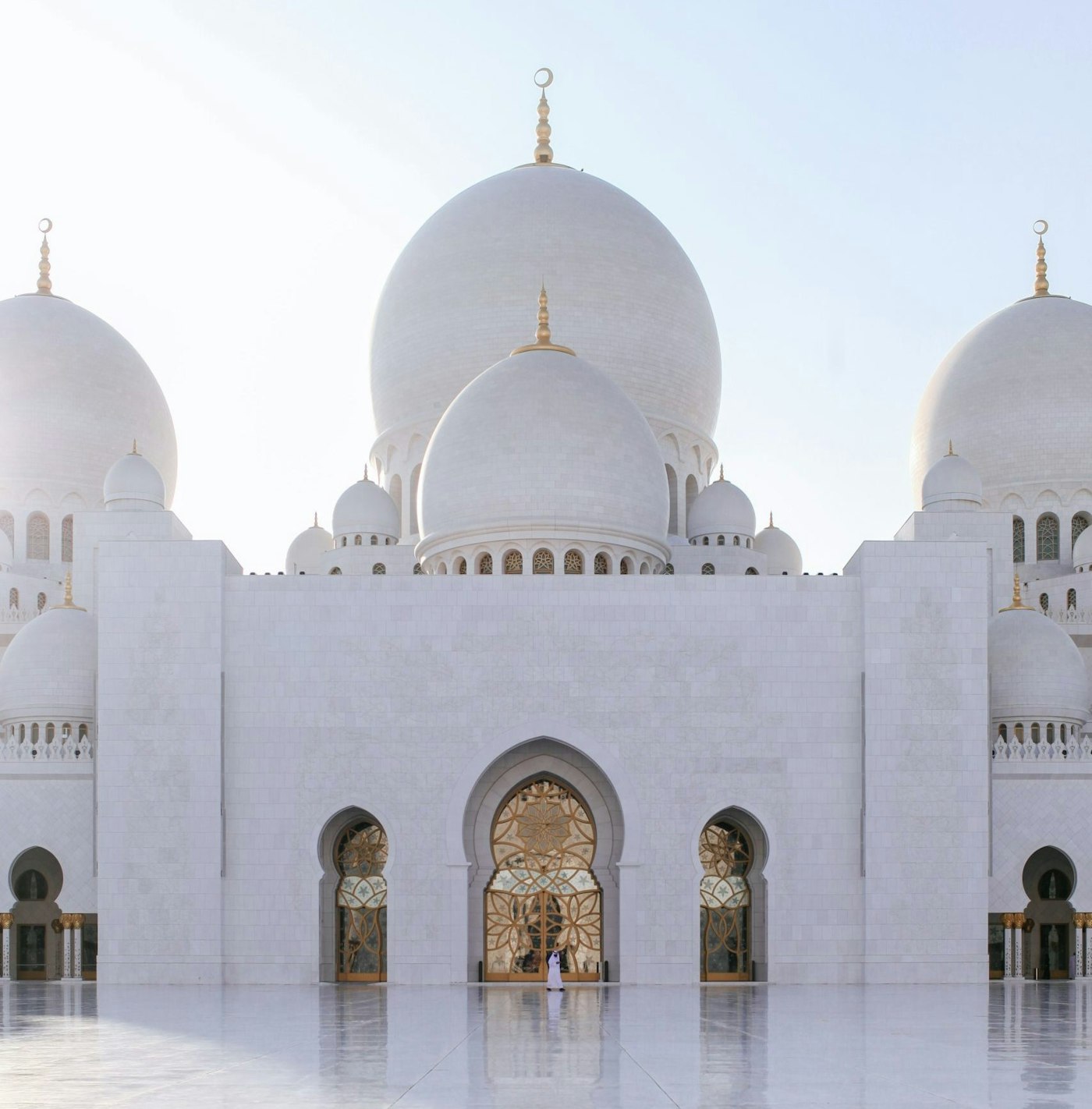Back to Basics | Tazkiyah: An Introduction to Spiritually Blossoming This Islamic New Year
by Ammarah Ahmed in Culture & Lifestyle on 13th July, 2023

This past Ramadan befittingly coincided with the start of the spring season. Much like the earth during this season, we also bloomed as we were showered with the blessings of the holy month. Soon after, the month of Dhul Hijjah heralded the summer season, and we were in full bloom with all of the blessings of these crucial Islamic months. We now stand at the advent of the Islamic new year.
Just like the example we see in nature, the months of Ramadan, Dhul Hijjah and Muharram symbolize sacrifice, rebirth and growth: a new you in the coming new year, closer to Allah with all of your purified spiritual intentions and aspirations. With the spiritual cultivation of these blessed months, we can flower into a beautiful version of ourselves.
The continual cycle of self-reflection and self-betterment is a pivotal exercise in the enlightening journey of being a Muslim. This is called Tazkiyah. The Arabic word Tazkiyah generally translates as “purification.” In another context, Tazkiyah refers to pruning a plant in order to remove anything that hinders its growth.
Tazkiyah, in practice, refers to a process that, through disciplining and purifying the Nafs (the self), we can rectify the heart and the soul into a state of Ihsan (excellence). The mind and the body can also be transformed in this process.
The Prophet Muhammad ﷺ said:
“Beware! There is a piece of flesh in the body if it becomes good (reformed) the whole body becomes good but if it gets spoilt the whole body gets spoilt and that is the heart.”
[Bukhari].
We aim to shed ourselves of any hidden negative traits like heedlessness, anger, ostentation, miserliness, envy, doubts or overall bad habits. These are all considered diseases of the heart. A clean heart is the objective of Tazkiyah. It helps us grow into illuminated Muslims with a clear sense of purpose.
The heart is the home of your faith. Similar to its physiological purpose of pumping blood to your entire body, the spiritual heart also spreads purity into all aspects of your being.
How Does Islam View the Heart?
To understand the purpose and power of Tazkiyah, we first need to understand the role of the heart. Hamza Yusuf’s book, Purification of the Heart, points out that almost all religious traditions emphasize the heart needing to be in good spiritual condition for growth. Scholars of Islamic sciences – early and modern – attest that the human heart has a role beyond bodily functions – it’s the home of an individual’s spirituality, and capable of processing intellect.
Let’s take a look at some verses of the Holy Qur’an that address the heart.
Consider this verse on the creation of the first human, Adam (AS):
“Then He proportioned him and breathed into him from His [created] soul and made for you hearing and vision and hearts [i.e, intellect]; little are you grateful.”
Here’s a verse on the ability of the heart to possess intellect:
“So have they not traveled through the earth and have hearts by which to reason and ears by which to hear? For indeed, it is not eyes that are blinded, but blinded are the hearts which are within the breasts.”
In fact, the Qur’an itself – the supreme source of knowledge and enlightenment – was revealed into the heart of Prophet Muhammad ﷺ:
“Indeed, upon Us is its collection [in your heart] and [to make possible] its recitation.”
Matters of the Heart & Soul
We have a duty to nurture our hearts so that we can flourish in our deen. If we’re not careful, worldly distractions and delusions can negatively impact our heart over time. All illnesses of the heart are roadblocks in the path of purification. However, the silver lining is that the cure is with Allah. The Prophet Muhammad ﷺ reassured us:
“There is no disease that Allah has created, except that He also has created its treatment.”
[Bukhari]
Tazkiyah involves liberating oneself from the worldly shackles and anxieties within us that bar our spiritual growth. Freedom and liberation does not mean to act upon every inclination, whim and fancy, because then we would become a slave to our desires. Rather, Islam teaches us that true liberation is to overcome and gain control of the Nafs. When the mind, soul and heart override the lower self, the path of purification and Ihsan is made clear. Ihsan is where we become instinctively inclined to that which is pure and brings us closer to Allah. A purified heart and soul spiritually elevates us and allows us to fully utilize the ‘Aql (intellect) that Allah (SWT) blessed His creation with. This type of enlightenment is achieved by relinquishing the self and acknowledging that Allah is Al-Haadi (The Provider of Guidance).
A Basic Guide to Tazkiyah
- Make the Intention
Tazkiyah starts internally, with the acknowledgement of any shortcomings and the goal of rectification. The heart has to first acknowledge its illness in order to purify and heal. Ask yourself: What’s holding me back from spiritually growing? Do I have any habits that are having a negative effect on my faith?
After deep introspection, make a plan. Just as some of us allocate a dedicated time to a workout routine, we can also set aside a specific time daily to practice things – obligatory and voluntary – that nurture our faith and connection with Allah. Make a plan, set goals, and hold yourself accountable.
- Seek Knowledge
Islam tells us we must seek the means by which to heal. We know that Allah has created the cure, but we have to find it through expanding our knowledge. The scholars emphasize studying the Sunnah of the Prophet Muhammad ﷺ and the life of his companions, as they were the first of those who purified themselves. Allah made the Prophet ﷺ a mercy for humanity in that he embodied Ihsan.
Allah answered the Prophet Ibrahim’s (AS) prayer with the arrival of Prophet Muhammad ﷺ:
“Our Lord, and send among them a messenger from themselves who will recite to them Your verses and teach them the Book and wisdom and purify them. Indeed, You are Exalted in Might, the Wise.”
We have another inspiring example in Maryam (AS), who is noted in the Islamic tradition as someone who reached perfection through her piety.
“And [mention] when the angels said, “O Mary, indeed Allah has chosen you and purified you and chosen you among all women of the worlds. O Mary, be devoutly obedient to your Lord and prostrate and bow with those who bow [in prayer].”
Furthermore, we can study the vast body of knowledge in Islamic psychology to understand different spiritual maladies and their cures. (See resources below)
- Purify Your Environment
Make an active attempt to filter out any distractions. Think about how you spend most of your free time. Is it something that is of benefit to you and your deen? If not, replace any bad habits with that which brings you closer to the remembrance of Allah.
Keep good company. As we can see mentioned in the verses about Maryam (AS) – being surrounded by like-minded people who remember Allah creates a healthy environment for growth. If this is hard for you to do, then acquaint yourself with the stories of the Prophets and the pious predecessors so you have an example of pure character.
- Purifying Acts of Worship
1. Dhikr (remembrance of Allah) – This helps us to be constantly aware of Allah, and our purpose as His creation.
Use the “cleanse and polish” method: Cleanse your heart by seeking forgiveness (Astaghfar), and polish with words of gratitude and glorification (SubhanAllah, Alhamdulillah, Allahu Akbar).
Additionally, if you’re someone who wants to incorporate physical wellness into this process, immerse yourself in nature and reflect upon the beauty of Allah’s creation. This can be a form of remembrance.
2. Qur’an & Salah – The Qur’an heals us by enlightenment. It’s another form of remembrance that directly treats the heart with words of guidance, comfort and encouragement. Connecting with the words of Allah is crucial in our everyday lives.
Likewise, Salah helps us to routinely ground ourselves in worship, drawing us closer to our Creator, and instilling in us our purpose as Muslims. Read more about the power of Salah here.
3. Charity – The word Tazkiyah comes from the root word Zakat (Islamic almsgiving). Zakat literally means “that which purifies.” Giving charity is recognizing that all your provision ultimately belongs to Allah. As we learn from the Qur’an, giving up a portion of your wealth is an act that purifies in the sight of Allah.
“So fear Allah as much as you are able and listen and obey and spend [in the way of Allah]; it is better for your selves. And whoever is protected from the stinginess of his soul – it is those who will be the successful.”
4. Fasting – Scholars say that both obligatory and voluntary fasting are the fortification of the believer. When we fast, our worldly desires become smaller as we realize that we truly rely upon Allah for all sustenance. Fasting is an extremely beneficial purification practice that helps us practice restraint and discipline of the Nafs.
5. Dua (Supplication) – Keep a strong connection with Allah by regularly communicating with Him. Anything we seek of this world and the next life can only come from Him. Allah reminds us that when we call upon Him, He will respond [Surah al Ghafir 40:60].
- Stay Committed
To avoid falling short, take small steps that will build a solid foundation. Remember, Tazkiyah is an ongoing process; it’s about both the journey (purification) and the destination (Ihsan). Treat this as a “lifestyle change” so that its benefits are sustainable.
Prophet Muhammad ﷺ said:
“Take on only as much as you can do of good deeds, for the best of deeds is that which is done consistently, even if it is a little.”
The Long-Term Role of Tazkiyah
The tools for success are all there. Seek them with patience and apply them with discipline. We aim to purify our heart and soul into a state of Ihsan because we know that this is the part of us that is presented to Allah. In the end, our physical body perishes, but the soul is everlasting.
“The Prophet Muhammad ﷺ said:
“Verily, Allah does not look at your faces and your wealth but He looks to your heart and to your deeds.”
[Muslim]
Remember, making the intention with Allah is a key factor in achieving a purified state. The scholars say to view Tazkiyah as a lifelong practice. However, the journey is liberating and enlightening every step of the way. It’s the perfect way to rejuvenate your faith, and is beneficial for both born and new Muslims.
“And [by] the soul and He who proportioned it
And inspired it [with discernment of] its wickedness and its righteousness,
He has succeeded who purifies it,
And he has failed who instills it [with corruption].”
Expand Your Understanding of Tazkiyah With These Helpful Resources:
Purification of the Heart by Hamza Yusuf (Book)
The Disease and the Cure by Ibn al-Qayyim (Book)
Heart Therapy by Hamza Tzortzis (Video)
Tazkiyah Through the Qur’an by Yahya Ibrahim (Video Series)

Ammarah Ahmed
Ammarah is a South Asian Muslim writer born in the U.S. who focuses primarily on Muslim identity. She believes in the power of the pen, and seeking and spreading knowledge. Her goal is to reclaim the narrative on Muslims through her writing to inspire peace and understanding.